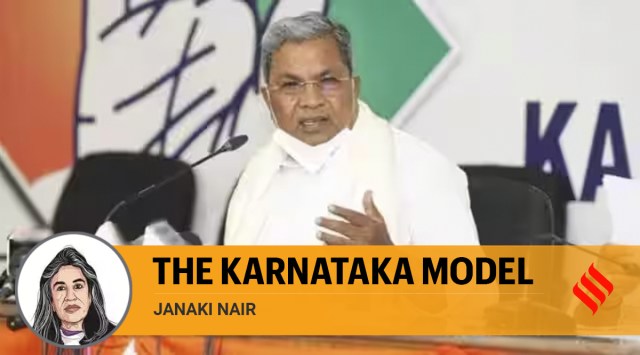
It takes some political courage, in our times, to take small steps that have great significance. So when the newly-elected Chief Minister of Karnataka, Siddaramaiah, threw open the South door of his office at Vidhana Soudha, the seat of government, he was defying a five-year-long political superstition. He said, instead, that there is no better Vaastu than good ventilation and light in the room, and a “pure mindset”.
He should know how difficult such simple assertions are. Following vociferous opposition from the then-Opposition BJP, the JDS, and assorted religious heads, the Karnataka Prevention and Eradication of Inhuman Evil Practices and Black Magic Act, 2017 was finally made law in 2020. But not before it exempted the practice of Vaastu, astrology, pradakshina or circumambulation of holy places, yatras, and parikramas performed at religious places, as well as the egregious practice of “Made Snana”, in which Dalits roll on left-over food, provided it was “voluntary”. His predecessors in the BJP-led government tried to stave off the worst by keeping the South door shut but brought a cow into the premises when the Karnataka Prevention Of Slaughter And Preservation Of Cattle Act was passed in 2020. All that “auspiciousness” did not save them in May 2023.
Congress does much to reverse the damage done to the fabric of the state by the BJP government. In addition to fulfilling its “five guarantees”, we now have a government that instructs its police to prosecute those who indulge in hate speech, hate crime or any of the public acts that were routinely accepted as “righteous reaction” by the Basavaraj Bommai government. This is no easy task, given that many in the police force had been accustomed, over the last three years, to wearing their Hindutva credentials on the sleeve, quite literally — some turned up in saffron “mufti” for duty on Vijayadashami day, 2021. It was all in a day’s work, to swing the lathi at hijab-wearing women, while sartorially declaring their political allegiance. Today, they are constantly reminded of their constitutional obligations.
The BJP has shown us that symbols matter in building an affective bond between the Indian people and its pet goals. So when the Karnataka government decided, as early as June, that the Preamble to the Constitution would be read daily in schools and colleges, it was to assert “a calm, rational loyalty to a set of laws, values, and ideas rather than to a national state or ethnic group or any other such essence” (as Juergen Habermas defined constitutional patriotism).
Merely replacing the Bhagavad Gita with the Preamble may not quite produce cheers among the young. Still, Social Welfare Minister H C Mahadevappa urged lakhs of students and citizens by September 15, 2023, World Democracy Day, to stand at street corners, schools and markets, to renew their pledge to the Holy Book.
This is not a hollow ritual to replace other rituals. There were further signs of the government’s move in the direction of constitutional patriotism. On September 17, while the Union government urged Karnataka to “Never Forget!” liberation from Razakar violence under the Nizam of Hyderabad (the day when it was taken over by the Indian army after five days of fighting, in which, we now know, between 27,000 and 40,000 Muslims were killed), the Karnataka government struck a different note. It commemorated the decade since 2012, when Hyderabad Karnataka was recognised as an “underdeveloped” region, and marked for special assistance under Article 371J of the Constitution.
The emphasis was thus subtly shifted away from remembrance of past wrongs to visionary futures. It will not be easy for Congress to maintain its self-description as a progressive and democratic government. In consulting all parties over the Cauvery Water Sharing dispute, in placing on hold the needlessly hasty and unthought adoption of the New Education Policy, and in removing the more egregious alterations to school textbooks, the government may be cautiously crafting an alternative strategy for change. Siddaramaiah leads by example, urging people to felicitate him with books, rather than shawls and garlands.
But such signs do not a revolution make. Old habits die hard, and it will be difficult for Congress to steer completely clear of charges of corruption, or tackle dominant caste warnings against tipping the scales too steeply away from their recently consolidated gains. Can Karnataka evolve new federal principles to resolve the decades-old conflict with Tamil Nadu over Cauvery water sharing? Or indeed build back a badly bruised Bengaluru? There is much opportunity to rethink the “Karnataka model” creatively. But for now, the people of the state breathe a different air.
The writer is a Bengaluru-based historian